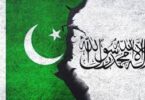State Bank of Pakistan (SBP) announced bi-monthly monetary policy which reflects a mix trend of improvement and deterioration in the macroeconomic indicators, revealing that the economy is still in a precarious condition due government’s indecision on certain policy measures. In foreign trade the deficit has declined both in current account and merchandise account. But excessive borrowing of government worth Rs. 4.8 trillion has increased the budget deficit. The rate of inflation has gone up from 3.8 percent to 7 percent because of increasing reliance on jacking the rates of indirect taxes, electricity and gas tariffs. The rate of interest has been increased by 150 basis points from the 10.75 percent to 12.25 percent.
After the PTI victory, people expected that the era of adhocism and regressive approach in fiscal and monetary management will come to an end but it did not happen. The confusion on the economic front has exacerbated with the departure of Asad Umer from the finance ministry and incoming of non-elected technocrat Hafiz Sheikh. In media talk after the announcement of “Declaration of Assets” scheme he appeared embarrassed and to be on the run while responding to the questions of reporters.
Increase in interest rate will discourage foreign and domestic investment. The growth in domestic and foreign direct investment is inevitable to arrest the downward slide of the economy. Increase in interest rate and open market operation of sale of Treasury bill produces the desired results only when buttressed by fiscal measures of direct taxes. That is why the SBP has subtly advised policy measures to tackle the monster of galloping inflation which will further accelerate if the government relies more on indirect taxes for additional revenue generation of Rs. 700 billion in the budget for next fiscal year. It is high time to impose and recover agriculture tax, substantially reduce the power sector circular debt by eliminating the default of bills to increase the amount of receivables of this sector, restructure or privitise the bleeding state enterprises. Likewise, the income of specialist doctors and lawyers need to be brought under the tax net. Moreover, the documentation of informal sector should not be delayed any more.
The external balance has improved as current account deficit has declined by $ 4 billion due to compression of imports and increase in workers remittances. However, the import bill of petroleum products has gone up. But at the same time rupee is fast shedding its value against the US dollar and other major currencies. The SBP intervention in the form of managed float may not be sustainable without increase in exports. The economic diplomacy of the government is entirely focused on acquiring high interest bearing short term loans from friendly countries and signing of MOUs for investment. It has not even dropped a word about the formulation of long term trade policy to boost exports by exploring new markets and increasing the quantum of exports to the existing destinations. While in opposition, the PTI leadership always agitated that Pakistan’s industry is not competitive because of technological stagnation and always pleaded for giving it protection in trade agreements and its modernization with the induction and indegenisation of latest technologies. But there are no indications to work out a comprehensive policy to make the industry competitive. The confusion on the economic front is damaging the image of PTI government among the people and above all the popularity of the Prime Minister.






